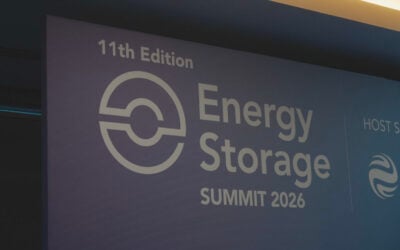
When it comes to realising the benefits of Inflation Reduction Act (IRA) incentives, the US energy storage industry has barely scratched the surface of what’s possible, according to FlexGen’s Yann Brandt.
While a big wave of tax equity financing deals leveraging the investment tax credit (ITC) is inevitable, there have only been a small handful publicly announced to date.
“It’s enormous, but yet, it hasn’t fully been captured as to just how big,” Brandt, who is CCO at the energy storage system integrator and software specialist, said to Energy-Storage.news in an interview, when asked about how people from outside the US should be thinking about the IRA’s impact.
“Especially for standalone energy storage – we’re just seeing the start of tax equity [financing] for energy storage.”
Try Premium for just $1
- Full premium access for the first month at only $1
- Converts to an annual rate after 30 days unless cancelled
- Cancel anytime during the trial period
Premium Benefits
- Expert industry analysis and interviews
- Digital access to PV Tech Power journal
- Exclusive event discounts
Or get the full Premium subscription right away
Or continue reading this article for free
With the new ITC for standalone storage – facilities not paired directly with generation at the point of connection to the grid – as the chief highlight for the storage industry among the IRA’s “hundreds of billions of dollars of capital coming into the energy transition”, the industry should expect many more tax equity deals.
As Brandt noted, only a couple of tax equity transactions for large-scale energy storage projects have been covered by sites like Energy-Storage.news, but industry observers should expect many more to come.
Yesterday we published an extract of an article by lawyers Morten Lund and Adam Schurle at Foley Lardner, who gave their their thoughts on the IRA: “What you need to know about the IRA and tax equity”.
The full article is included in the Q3 2023 edition of our quarterly journal PV Tech Power (Vol.36). But it is hardly a spoiler for either extract or full piece to say that the authors explain that availing of the full benefits can be complex, and explain why.
FlexGen’s Yann Brandt, who also sits on the board of directors at the US national Solar Energy Industries Association (SEIA) as well as being chair of its energy storage division, said that “it is really hard to predict what will happen,” over the long term.
“But the IRA really lowers the cash cost to investors [into energy storage] by 30 – 40%,” which will “enable the acceleration of all energy storage projects that the industry was planning to do before the legislation passed,” added Brandt. He noted that this also enables “so many more projects to be cost-competitive with the return profile”.
That in turn will have a snowball effect. The legal experts from Foley Lardner noted just how the ITC caused the solar PV industry in the US to take off in a big way over the past decade or so, and posited the question of whether this would be the case for batteries – and other storage technologies – in the coming years.
Brandt said the handful of early tax equity financings seen will themselves build confidence not just in the actual investors involved, but also industry-wide, in investing in energy storage.
“Every time a transaction gets done, that means one extra person got comfortable with batteries as an asset class,” Brandt said.
“They’ve done their diligence on the battery, the developer, the asset owner, the optimiser and trading strategy [and] the energy management system. It creates a bankability checkbox. And everyone’s always afraid to be the first.”
“Ultimately, it makes it [financing with the ITC] routine,” Brandt said, observing that there are no longer companies making press releases around tax equity financing for solar PV the way that some of those in energy storage deals have been doing in the past few months, given that for PV, it is now a normal everyday practice.
This article has been amended to accurately reflect Yann Brandt’s job titles at FlexGen and SEIA.





